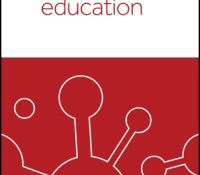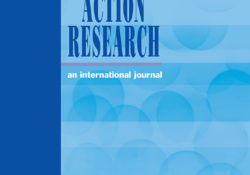eric.ed.gov har udgivet: The authors’ goal is twofold. First, they wished to produce a theoretically-based approach to this synthesis. Child-centered programs have a long history. However, concerns about children’s achievement, and the pressure of content-specific standards, have set up a perceived conflict, in which educators believe they are being asked to abandon child-centered approaches, or, at least, to compromise and squeeze in, as one teacher put it, “Literacy on Monday-Wednesday-Friday, math on Tuesday-Thursday, and socio-emotional during our shortened play periods.” They hope that their approach, if shown to be efficacious, will serve as a model that others can use to successfully and synergistically combine these strategies so the whole is more than the sum of its integrated, not conflicting, parts. Second, and more importantly, they are producing a rigorous evaluation… Continue Reading →
Like this:
Like Loading...
eric.ed.gov har udgivet: Early behavioral self-regulation is an important predictor of the skills children need to be successful in school. However, little is known about the mechanism(s) through which self-regulation affects academic achievement. The current study investigates the possibility that two aspects of children’s social func- tioning, social skills and problem behaviors, mediate the relationship between preschool self-regulation and literacy and math achievement. Additionally, we investigated whether the meditational processes differed for boys and girls. We expected that better self-regulation would help children to interact well with others (social skills) and minimize impulsive or aggressive (problem) behaviors. Positive interac- tions with others and few problem behaviors were expected to relate to gains in achievement as learning takes place within a social context. Preschool-aged children (n = 118) were tested with… Continue Reading →
Like this:
Like Loading...
tandfonline.com har udgivet en rapport under søgningen “Teacher Education Mathematics”: Abstract Formulae display:?Mathematical formulae have been encoded as MathML and are displayed in this HTML version using MathJax in order to improve their display. Uncheck the box to turn MathJax off. This feature requires Javascript. Click on a formula to zoom. Abstract Self-regulated learning (SRL) strategies have gained a great prominence in second language reading comprehension; however, to have a comprehensive picture of their efficacy, this study investigated the significant relationships among SRL components, reading comprehension and reading problem solving. Moreover, it examined the effects of SRL instruction on SRL strategies, reading comprehension, problem solving and the strength of the relationships among these variables. To this end, 183 Iranian English as a foreign language (EFL) learners participated in two phases… Continue Reading →
Like this:
Like Loading...
eric.ed.gov har udgivet: The current study investigated the predictive utility among teacher-rated, observed, and directly assessed behavioral self-regulation skills to academic achievement in preschoolers. Specifically, this study compared how a teacher report, the Child Behavior Rating Scale, an observer report, the Observed Child Engagement Scale, and a direct assessment, the Head-Toes-Knees-Shoulders task, relate to early math and literacy skills. The sample consisted of 247 children from 31 preschool classrooms. Trained research assistants observed a subsample of 104 children. Results indicated significant, positive relationships for teacher-rated and directly assessed behavioral self-regulation for early math and literacy skills. Teacher ratings were the strongest predictors of literacy, and the direct assessment emerged as the strongest predictor of math. Observed behavioral self-regulation was not significantly related to either academic domain. Discussion focuses on domain… Continue Reading →
Like this:
Like Loading...
tandfonline.com har udgivet en rapport under søgningen “Teacher Education Mathematics”: ABSTRACT ABSTRACT The aim of the present study is to advocate the use of a participatory action research programme, the Formative Scaffolding Programme (FSP), in mathematics. The FSP’s main structure is presented as well as an implementation of a class intervention, with the aim of exploring the FSP test cycle’s virtues in a social science class in a Swedish upper-secondary school. The motivations for the FSP’s development were to enhance students’ awareness of their mathematical proficiency, alter the level and strength of their self-efficacy, foster self-regulated learning (SRL), reduce and prevent mathematics-related anxiety, and visualise the learning process in mathematics. The primary findings of the study were there was a resemblance between the FSP setting and SRL phases, and that participation… Continue Reading →
Like this:
Like Loading...

